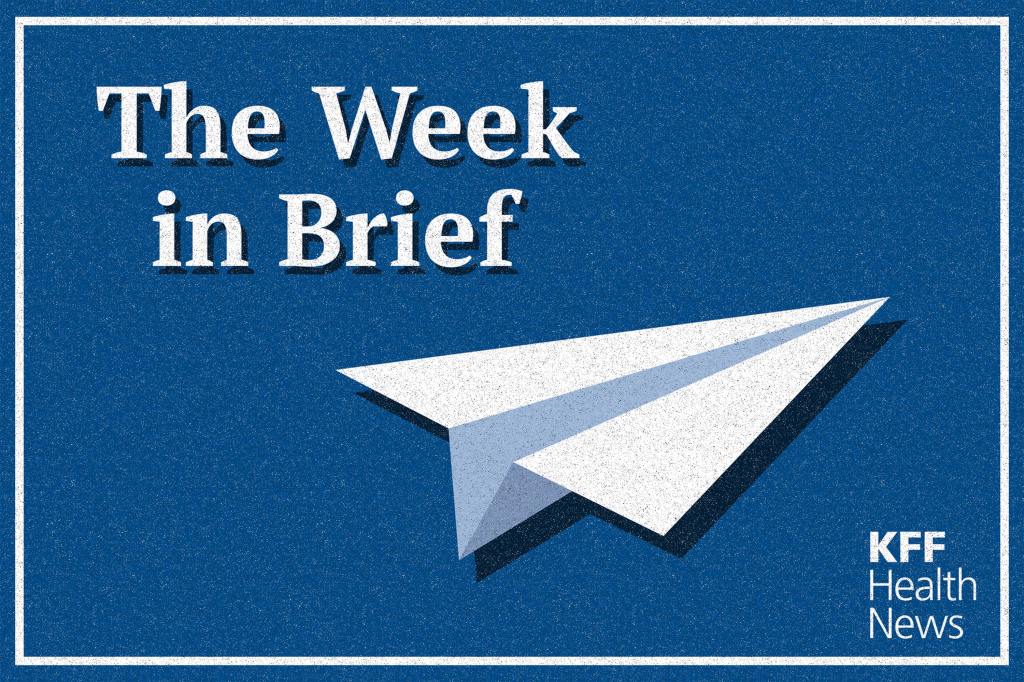Health
Brownstone Institute Influences U.S. Health Policy in Trump Era

The Brownstone Institute, a Texas-based think tank founded by libertarian author Jeffrey Tucker, has made significant inroads into the policy landscape of Washington, D.C., particularly during the presidency of Donald Trump. Established in 2021, the institute emerged as a response to the backlash against COVID-19 lockdowns and other pandemic-related measures. Its mission focuses on limiting government intervention in public health, particularly regarding disease prevention.
In recent months, the influence of individuals associated with the Brownstone Institute has grown notably within the U.S. government. At least eight members or affiliates of the institute currently hold or have recently held senior positions at federal health agencies, including the National Institutes of Health (NIH) and the U.S. Food and Drug Administration (FDA). Additionally, some have served on a key vaccine advisory panel for the Centers for Disease Control and Prevention (CDC).
These individuals are playing a crucial role in shaping U.S. public health policy. Their positions have allowed them to introduce skepticism regarding the safety and efficacy of COVID-19 vaccines, as well as routine childhood immunizations. As noted by Jake Scott, a physician at Stanford Medicine specializing in infectious diseases, “They’ve successfully placed their ideology inside the mechanism that determines U.S. vaccine policy. It’s very, very troubling.”
Controversial Ideologies and Financial Backing
The Brownstone Institute promotes itself as a platform for “writers, lawyers, scientists, economists, and other people of courage who have been professionally purged and displaced during the upheaval of our times.” In a statement to KFF Health News, Tucker emphasized that the institute has a moral obligation to support those dissenting from mainstream public health narratives, arguing against what he perceives as a “state-imposed orthodoxy.”
Critics, however, contend that the institute’s associates often propagate extreme anti-vaccine rhetoric. Dorit Reiss, a professor at the University of California Law-San Francisco specializing in vaccine policy, remarked, “They’ve been willing to publish articles of some very extreme anti-vaccine people.” This raises concerns about the potential impact of such messaging on public trust in vaccines.
Financially, the Brownstone Institute has reported nearly $7.4 million in contributions, grants, and other payments from 2021 to 2024, suggesting significant backing for its activities and objectives.
Claims of Influence and Governance
Despite the growing presence of Brownstone affiliates in key governmental roles, Tucker insists that assertions of a coordinated agenda are unfounded. “Anybody who thinks that somehow Brownstone is some big plot, it’s crazy,” he stated. He also indicated that he does not maintain regular contact with Health and Human Services Secretary Robert F. Kennedy Jr., whose department oversees the CDC, FDA, and NIH, asserting, “I don’t have any influence.”
As the Brownstone Institute continues to shape discussions around public health, its impact on U.S. policies and attitudes toward vaccines remains a topic of significant debate. The interplay between its libertarian ideals and established public health guidelines will likely evolve as these dynamics unfold in the coming years.
For further updates on health policy and public health debates, readers can subscribe to KFF Health News’ weekly newsletter, “The Week in Brief.”
-

 Technology5 months ago
Technology5 months agoDiscover the Top 10 Calorie Counting Apps of 2025
-

 Technology2 weeks ago
Technology2 weeks agoOpenAI to Implement Age Verification for ChatGPT by December 2025
-

 Health3 months ago
Health3 months agoBella Hadid Shares Health Update After Treatment for Lyme Disease
-

 Health3 months ago
Health3 months agoAnalysts Project Stronger Growth for Apple’s iPhone 17 Lineup
-

 Health3 months ago
Health3 months agoErin Bates Shares Recovery Update Following Sepsis Complications
-

 Technology5 months ago
Technology5 months agoDiscover How to Reverse Image Search Using ChatGPT Effortlessly
-

 Technology3 months ago
Technology3 months agoElectric Moto Influencer Surronster Arrested in Tijuana
-

 Technology2 months ago
Technology2 months agoDiscover 2025’s Top GPUs for Exceptional 4K Gaming Performance
-

 Technology5 months ago
Technology5 months agoMeta Initiates $60B AI Data Center Expansion, Starting in Ohio
-

 Technology5 months ago
Technology5 months agoRecovering a Suspended TikTok Account: A Step-by-Step Guide
-

 Health5 months ago
Health5 months agoTested: Rab Firewall Mountain Jacket Survives Harsh Conditions
-

 Lifestyle5 months ago
Lifestyle5 months agoBelton Family Reunites After Daughter Survives Hill Country Floods





















